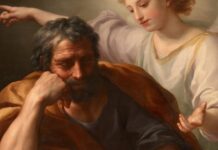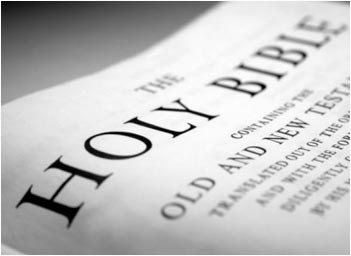By Robin Sam
THE Bible is a book of records. It has innumerable genealogies. In olden days, genealogies were used to trace family trees and determine who’s who. Even some diehard readers of the Bible tend to skip genealogies as they consider it unimportant. Do genealogies matter?
There are men and women around us who boast in their family trees and lineages. They boast about a long dead and long forgotten great, great grandfather or an uncle or an aunt who was a so and so in some place. Apostle Paul frowns upon those who boast about their family lineages. In Titus 3:9, he is clubbing foolish controversies, genealogies, strife and disputes about the Law together and calls them unprofitable and worthless. Again, in 1 Timothy 1:3-4, he says: ‘As I urged you when I went into Macedonia—remain in Ephesus that you may charge some that they teach no other doctrine, nor give heed to fables and endless genealogies, which cause disputes rather than godly edification which is in faith.’
The only genealogy worth talking about is the one concerning the birth of Jesus.That’s the only genealogy that matters.
Writing in Bible Study Tools, Mike Leake said: ‘Biblical genealogies are telling a story—they are telling THE story of God’s restoring to humanity the rest, rule, and relationship we had with Him in the Garden of Eden. And he is doing it through the “seed of the woman” (Genesis 3:15). They are often used to tell smaller stories—such as introducing a character like Noah. Yet every genealogy ultimately is tied to this greater story.’
There are two genealogies concerning Jesus in the Bible. The Gospels of Matthew and Luke have them, but they are not exactly the same. Why is there a difference in these two genealogies?
In the Gospel of Matthew 1:1 to 17, the lineage traces the earthly line of Jesus through Joseph whereas Luke does it through Mary. In other words, Matthew has the legal lineage of Jesus while Luke has the bloodline lineage of Jesus.
Verse 11 says Josiah is the father of Jeconiah. Josiah was a great king. Incidentally, he was the last good king of Judah before the exile of the Jews to Babylon.
This Jeconiah is none other than Jehoiakim mentioned in 2 Chronicles 36:5. Jehoiakim aka Jeconiah was the third to the last king before the Babylonians invaded the southern kingdom of Judah.
Jeconiah was so evil that God cursed hi and said: ‘He will have no one sit on the throne of David; his body will be thrown out and exposed to the heat of the day and the frost by night’ (read Jeremiah 36:30).
2 Kings 23:37 says this about Jeconiah. “And he did evil in the eyes of the Lord, just as his fathers had done.’
If God had cursed Jehoiakim, and told him that he will have nobody to sit on the throne of King David, why did Matthew include him in the genealogy of Jesus? We don’t know why, but the simple answer to it would be it does not matter because Matthew is only dealing with the legal lineage of Jesus through Joseph and not the bloodline through Mary.
Matthew’s genealogy is traced through Solomon, son of David while Luke’s genealogy is traced through Nathan, son of David. That’s where the lineages diverge.
The genealogy of Matthew has a lot of people who can be called as people who were held in ill repute. People no one would trust enough to do business with. A pack of evil doers and sinners.
The genealogy of Jesus makes an important statement. Jesus identifies Himself with sinners. He came to save the lost. He came for us – you and me.
Even today, Jesus is looking for men and women of ill repute. People who no one would trust enough to do business with. People who lie, cheat, swindle, prostitute, murder. People who fail God, people who don’t measure up in men’s esteem and fall by God’s standards. People who struggle with sin and the flesh.
Apostle Paul says in 2 Corinthians 5:21, ‘God made Him who had no sin to be sin for us, so that in Him we might become the righteousness of God.’
The Women in the Genealogy of Jesus
Tamar who prostituted herself to Judah, her father in law, to get a child, Rahab, the prostitute who lived and worked in Jericho, Bathsheba, mentioned here as Uriah’s wife, and Ruth, the Moabite woman, are all here making a powerful statement.
All of these women were both weak and powerful in their own respect. Whether you call them victims of circumstances or people who were sinned against, they all needed the grace of God. They all needed a Savior!
The message of the genealogy of Jesus is this – no matter what a wretched life you have lived, if you turn yourself over to God, He will make you new and do something beautiful in your life.
He can fix broken lives, broken marriages, ruined relationships and weave a beautiful fabric out of your life.





















